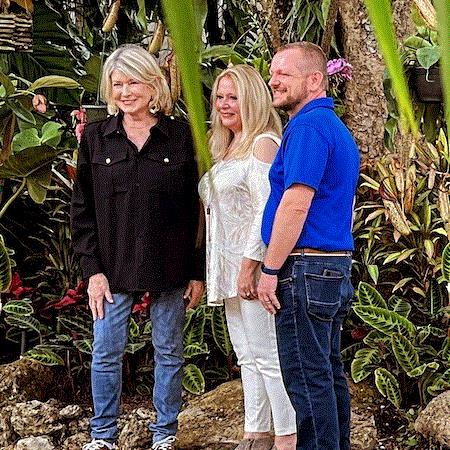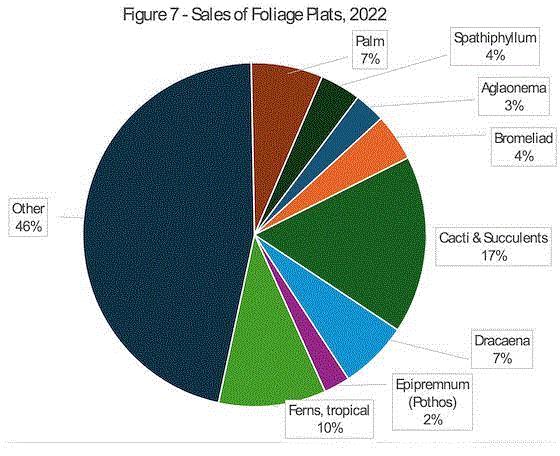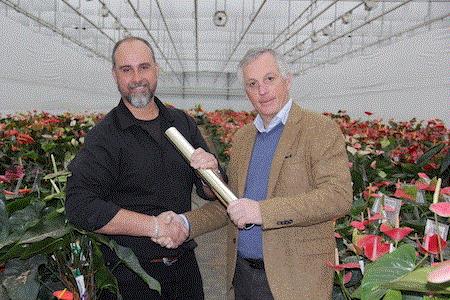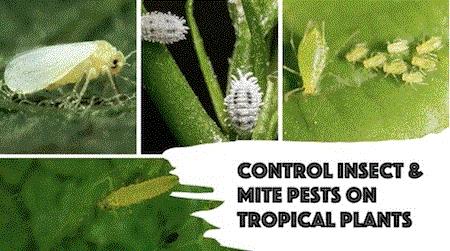Martha Makes a Visit
Imagine your operation playing host to home, kitchen and garden celebrity Martha Stewart. That’s exactly what happened for the folks at Excelsa Gardens in Loxahatchee, Florida, at the end of February.
It wasn’t a surprise visit, thank goodness. Excelsa did have a heads up about Martha’s intentions, thanks to her production team. They wanted to do some filming for Martha’s most-recent video collaboration with the Roku Channel. If you didn’t know, Roku has a whole collection of Martha’s previous television shows, as well as new shows such as “Martha Cooks" and “Martha Gardens.” The latter show, now filming its second season, is what brought Martha to Loxahatchee.

Martha Stewart visits with Excelsa Gardens co-owners Susan and Colin Friedrich. Photo from Excelsa's Facebook page - thank you!
Co-owner Susan Friedrich told me Martha was really interested in the bananas, palms and exotic plants. The sausage tree (Kigelia africana) especially caught her attention! From what Susan experienced, Martha certainly enjoyed her time—so much so that she essentially said the film crew could wait as they explored more and more of the property’s gardens and greenhouses.
“I was just so impressed with her,” Susan told me. “Just talks to you like a regular person. I know she’s a celebrity, but you wouldn’t know it if you didn’t know who she was.”
At press time I didn't know the schedule for release of season 2, but I'll keep you posted when I have more information. Meanwhile, if you want to see "Martha Gardens" season 1, you can find that HERE. And THIS EPISODE from season 1 focuses on houseplants. It’s free to watch, by the way. It's good for us that she's so thrilled by our industry. Martha has a great Instgram account and it's totally worth following (do so HERE). Follow Excelsa Gardens on Facebook to see all the great plants that brought Martha to their nursery.

Foliage Stats, Summarized
Someone else who's just as thrilled with horticulture, but in a completely different and numbers-driven way, is none other than Ball Horticultural’s own Market Research Manager Dr. Marvin Miller. Known as the “hortistician” among the Ball Publishing team, Marvin enjoys no greater professional project than to convert the U.S. Department of Agriculture’s National Agricultural Statistics Service Floriculture Crops Summary into horticultural plain talk so folks like you and me can understand what’s going on in the industry and contemplate next steps.
A few weeks ago, the entire issue of Bossman Beytes’ Acres Online was dedicated to the 2022 Floriculture Crops Summary (released in 2023). You can read all of that edition HERE if you wish. I’ve pulled out the portion of Marvin’s comments that deal with foliage plants, which is behind only bedding/garden plants (60%) and potted plants (19%) in importance to the U.S. floriculture market.
Here's Marvin’s analysis on the 2023 survey:
The third industry segment of importance for U.S. floriculture is foliage plants, accounting for 13.9% of sales dollars in 2022, up from 13.4% of industry sales in 2021. Total sales increased in 2022 to $826.3 million (up 8.9%). Over 91% of the segment’s dollars came from sales of potted foliage plants, while nearly 9% came from sales of foliage hanging baskets.

Of the separately identified classes sold in 2022, cacti and succulents accounted for 16.7% of sales (Figure 7), and tropical ferns accounted for 10.1% of sales. These were followed by palms (6.8% of sales), dracaena (6.5%), bromeliads (4.4%), spathiphyllum (3.8%), aglaonema (2.9%) and epipremnum (pothos) (2.5%). All other classes accounted for the remaining 46.3% of foliage sales.
Thanks for the summarization, Marvin! Readers, how are you seeing these categories play out in either your own growing operation or in retail? In your experience, do you find there's a difference between what was selling (and how much) in 2023 and what you expect to happen in 2024? Drop me a note about it HERE.

Dümmen Orange & Rijnplant
In 20215, Dümmen Orange (known then as DNA Group) acquired Netherlands-based anthurium propagator and producer Rijnplant. As of March 1 of this year, Rijnplant is once again independently operated and under the leadership of Paulo Reis.

Dümmen Orange CEO Hugo Noordhoek Hegt (right) hands over Dümmen Orange's anthurium production (and a symbolic baton) to Paulo Reis, Director of Rijnplant.
Dümmen’s CEO Hugo Noordhoek Hegt said this of the transition, “Disposing of our anthurium production aligns with our chosen business strategy. Dümmen Orange is primarily a breeder. Our focus is on developing and commercializing top genetics. As an independent anthurium producer, Rijnplant is in a much stronger position and I am confident in their continued success.”
Dümmen Orange will continue its breeding efforts in the anthurium category.
Rijnplant, which has been in anthurium production since 1975, will focus on new production technologies, supplying top-quality products and offering top-notch customer service.
“We have a wonderful portfolio of well-known varieties for the global market and we are committed to continuing their supply,” Rijnplant’s Paulo Reis stated in a press release. “We also feel responsible for following up on everything in our test programs and pipelines. There’s a lot of innovation happening in the field of new genetics and we see tremendous potential for Rijnplant in this. Let the breeders focus on breeding and we will take care of the rest!”

Tropical Plant Pests—Solutions on Video
I want to thank my colleague Bill Calkins with the Tech On Demand newsletter and podcast for doing all of the heavy lifting on the following video about common insect and mite pests on tropicals.

In the VIDEO, which is a shortened version of a much longer video, Bill joins Ball Seed’s tropical and foliage expert Andrew Britten. They discuss ways to control the more common insect and mite pests that one might experience while producing tropicals and foliage crops in a greenhouse or nursery setting.
Like which? All the ones you love to hate—aphids, spider mites, mealy bugs, whiteflies and thrips. Andrew has control suggestions and solutions for all, whether you use conventional chemical or biological controls.
Thank you, Andrew, for your expertise—and thank you, Bill, for sharing!
Comments, questions, suggestions? Email me about them at ewells@ballpublishing.com.

Ellen Wells
Senior Editor
Green Profit
This edition of Tropical Topics was sent to 29,483 loyal readers!
If you're interested in advertising on Tropical Topics, contact Kim Brown ASAP!